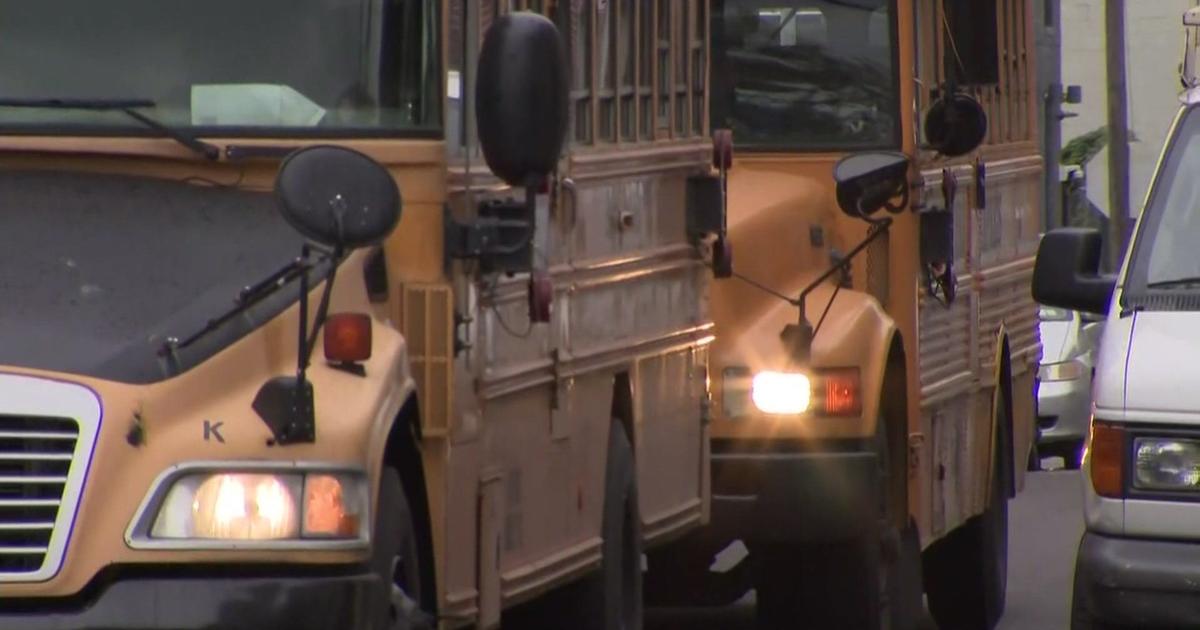Florida Brothers Hit With Maximum Sentences For NY Terror Plot
MIAMI (CBSNewYork/AP) -- A federal judge imposed the maximum possible prison sentences Thursday on two Pakistani-born brothers who admitted trying to pull off a terrorist bomb attack against New York City landmarks and later assaulted two deputy U.S. marshals while in custody.
U.S. District Judge Beth Bloom compared the plot, which never got past the planning stages, to the 2013 Boston Marathon bombings in which the two attackers used commonplace pressure cookers. In the Florida case, evidence shows the younger brother, 22-year-old Raees Alam Qazi, researched how to make bombs on the Internet using readily available items such as Christmas tree lights and chemicals.
"You are a terrorist. Evil in nature and evil in your deeds," Bloom said to Raees Qazi. "You chose to engage in conduct that can only be described as evil and reprehensible."
The judge sentenced Raees Qazi to 35 years in prison while his brother, 32-year-old Sheheryar Alam Qazi, was sentenced to 20 years behind bars. Both sentences were three years above those recommended by prosecutors and defense attorneys in a March plea deal.
Sheheryar Qazi got a lesser sentence because his main role was to back his brother financially as he sought to actively plan an attack, according to court documents. Bloom said evidence shows Sheheryar Qazi was fully aware of and supported the plot.
"Your assistance allowed your brother to continue with his evil plan," the judge said, adding that the FBI investigation and arrests "prevented what could have been a tragic loss of many lives."
The two brothers, who lived in Broward County, Florida, were arrested there in November 2012 after Raees Qazi returned from New York by bus following a target scouting mission and possibly an aborted attack, authorities said.
Assistant U.S. Attorney Karen Gilbert said in December 2012 that Raees Qazi researched bomb-making techniques on Internet sites affiliated with al-Qaeda, including one using Christmas tree lights.
"He fully intended to do this, and thankfully he didn't have enough money," Gilbert said. Referring to casualties in U.S. drone attacks, she added: "He wants to avenge those deaths and kill people."
Raees Qazi traveled to New York in hopes of getting a job to fund his terrorist plans, Gilbert said, but wound up sleeping in public transportation, a mosque and in restaurants, and riding a bicycle around the city looking for potential targets.
Neither man said anything beyond simple one-word answers to the judge's questions, and Sheheryar Qazi spent the hearing busily writing on a yellow legal pad with his head bowed. Their attorneys also declined comment in court and outside.
According to a factual statement signed by both brothers, Raees Qazi tried to join Islamic extremists in 2011 in Afghanistan while visiting Pakistan. When that failed, he opted to become a "lone wolf" who would plot ways of attacking the U.S. from within.
Raees Qazi told a confidential FBI informant in one meeting that he had been in contact with al Qaeda operatives and added, "the leaders know what they are talking about so when they call on Muslims in the West to stay in the West, there's a reason for that,'' according to the statement.
Both brothers were avid followers of lectures by Anwar al-Awlaki, an American-born radical Muslim cleric who was killed by a U.S. drone strike in Yemen in September 2011, according to the statement. They were also recorded in FBI wiretaps and listening devices expressing support for al-Qaida and its former leader, Osama bin Laden, and took tips from the terror group's Inspire magazine.
Earlier in the case, defense lawyers sought access to information about the brothers collected under the once-secret National Security Agency surveillance program revealed by one of its contractors, Edward Snowden. Prosecutors eventually agreed they had a duty to turn over the information but did not do so because they decided not to use it as evidence.
As the case was progressing, on April 6, 2014, the brothers used a ruse to distract two deputy marshals while being escorted in the Miami court complex. The marshals suffered bruises and other injuries in the attack, during which the brothers yelled "Allahu Akbar," which is Arabic for "God is Great."
(TM and © Copyright 2015 CBS Radio Inc. and its relevant subsidiaries. CBS RADIO and EYE Logo TM and Copyright 2015 CBS Broadcasting Inc. Used under license. All Rights Reserved. This material may not be published, broadcast, rewritten, or redistributed. The Associated Press contributed to this report.)



